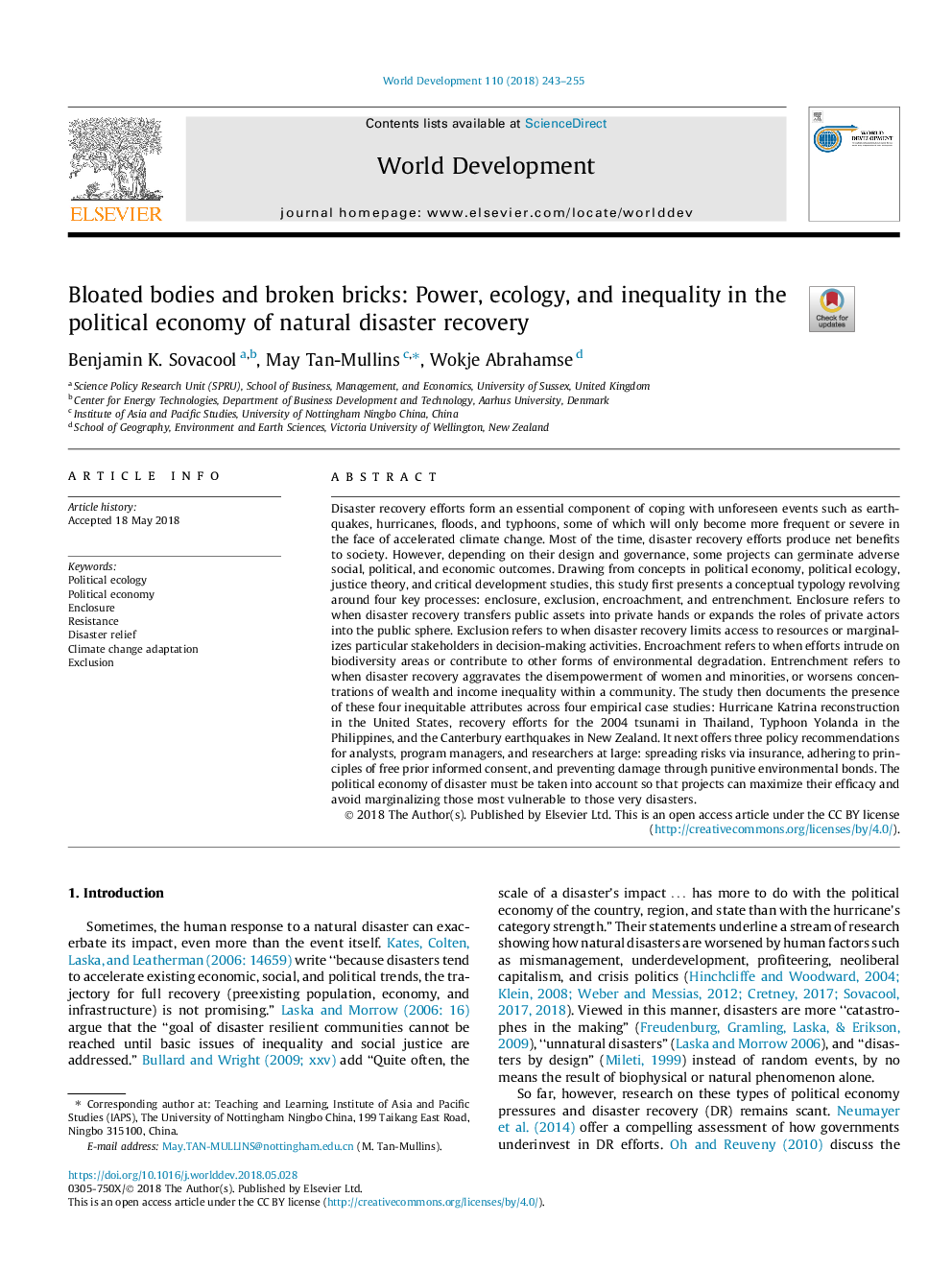| کد مقاله | کد نشریه | سال انتشار | مقاله انگلیسی | نسخه تمام متن |
|---|---|---|---|---|
| 7391373 | 1481108 | 2018 | 13 صفحه PDF | دانلود رایگان |
عنوان انگلیسی مقاله ISI
Bloated bodies and broken bricks: Power, ecology, and inequality in the political economy of natural disaster recovery
ترجمه فارسی عنوان
بدن های شناخته شده و آجر شکسته: قدرت، محیط زیست و نابرابری در اقتصاد سیاسی از بازیافت فاجعه طبیعی
دانلود مقاله + سفارش ترجمه
دانلود مقاله ISI انگلیسی
رایگان برای ایرانیان
کلمات کلیدی
محیط زیست سیاسی، اقتصاد سیاسی، محفظه، مقاومت، تسکین فاجعه، سازگاری تغییرات اقلیمی، خروج،
موضوعات مرتبط
علوم انسانی و اجتماعی
اقتصاد، اقتصادسنجی و امور مالی
اقتصاد و اقتصادسنجی
چکیده انگلیسی
Disaster recovery efforts form an essential component of coping with unforeseen events such as earthquakes, hurricanes, floods, and typhoons, some of which will only become more frequent or severe in the face of accelerated climate change. Most of the time, disaster recovery efforts produce net benefits to society. However, depending on their design and governance, some projects can germinate adverse social, political, and economic outcomes. Drawing from concepts in political economy, political ecology, justice theory, and critical development studies, this study first presents a conceptual typology revolving around four key processes: enclosure, exclusion, encroachment, and entrenchment. Enclosure refers to when disaster recovery transfers public assets into private hands or expands the roles of private actors into the public sphere. Exclusion refers to when disaster recovery limits access to resources or marginalizes particular stakeholders in decision-making activities. Encroachment refers to when efforts intrude on biodiversity areas or contribute to other forms of environmental degradation. Entrenchment refers to when disaster recovery aggravates the disempowerment of women and minorities, or worsens concentrations of wealth and income inequality within a community. The study then documents the presence of these four inequitable attributes across four empirical case studies: Hurricane Katrina reconstruction in the United States, recovery efforts for the 2004 tsunami in Thailand, Typhoon Yolanda in the Philippines, and the Canterbury earthquakes in New Zealand. It next offers three policy recommendations for analysts, program managers, and researchers at large: spreading risks via insurance, adhering to principles of free prior informed consent, and preventing damage through punitive environmental bonds. The political economy of disaster must be taken into account so that projects can maximize their efficacy and avoid marginalizing those most vulnerable to those very disasters.
ناشر
Database: Elsevier - ScienceDirect (ساینس دایرکت)
Journal: World Development - Volume 110, October 2018, Pages 243-255
Journal: World Development - Volume 110, October 2018, Pages 243-255
نویسندگان
Benjamin K. Sovacool, May Tan-Mullins, Wokje Abrahamse,
